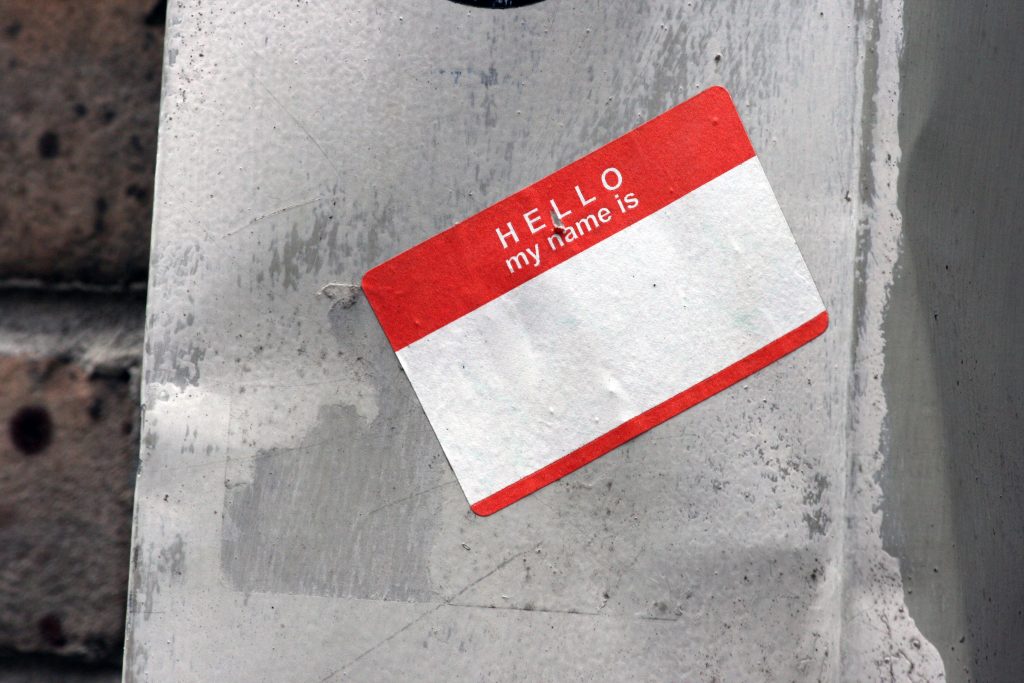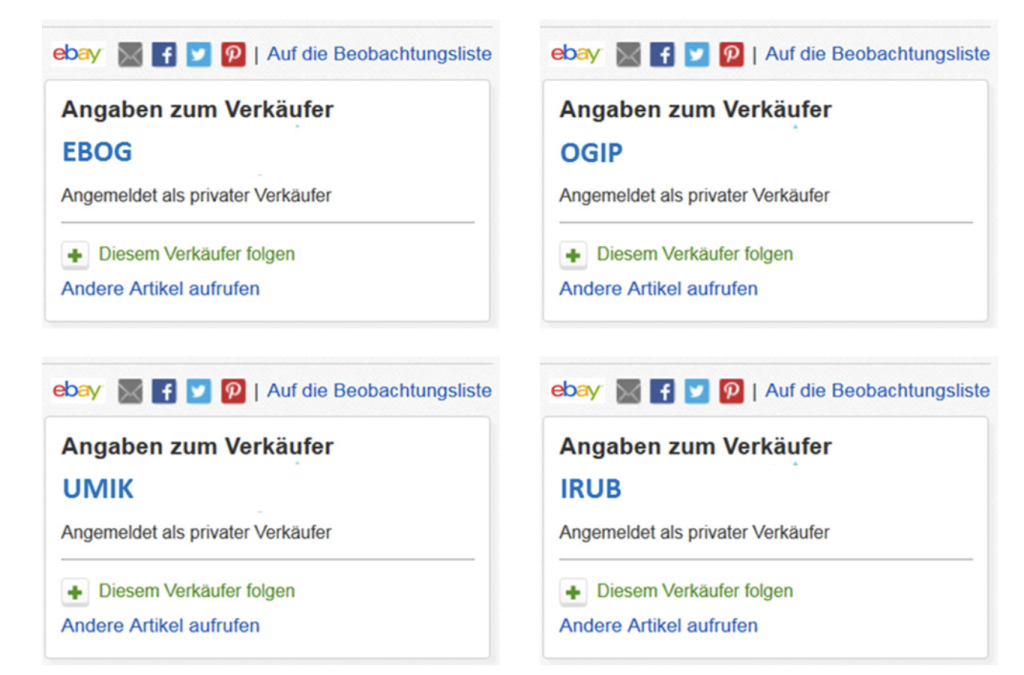When you want to log in or sign in to any website or digital services, more often than not you are asked to provide a username. Unlike a nickname in real life, you assign yourself a name. It can be your real name, a version of it, or something completely different. People might try to make a joke with their username (at least I tried). The choices are limitless. A username can convey a lot of things, and can be related to something you are passionate about, so it can showcase a part of your identity. It can be a way to meet other people with similar opinions as stated with their username. It can be randomly generated and would not give away any information about you. But there are consequences that we are not even aware of while making this unseeingly easy decision. A direct way to observe such consequences is seller performance on eBay. eBay username decisions made by sellers can affect how they are perceived by the customers.

Gaining trust with a name
In e-commerce websites, like eBay. People may try to convey that they are a reliable seller for example by naming themselves after the range of products they are selling. However, it is not that straightforward. There are multiple ways to achieve that via a username. First, let me walk you through real-life examples.
Naming affecting the perception is nothing new. Product or brand names’ ease of pronunciation influences consumer attitudes and choices for example stocks with easy-to-pronounce codes outperform stocks with difficult-to-pronounce codes on short-term price fluctuations (Alter & Oppenheimer, 2006).
Besides the ease of pronunciation, the way the name sounds also affects the assessment of trust and reliability. Words with high-pitch vowels allow us to assume something small, fast, light, and/or spatially close whereas names with low-pitch vowels convey otherwise. If the characteristics of the brand name fit with what it is selling, consumers prefer it more than other brands.
In addition, the constant articulation spots that we use during the pronunciation of a word also influence our judgment of that word. Topolinski et al. (2014) constructed made-up words to assess the effect of articulation spots on our judgment. A word was identified as inward if the articulation spots moved towards the throats, an example from their study would be in MENIKA, in which M is pronounced in the front of the mouth by pressing the lips and K is pronounced further in the back, close to the throat. An outward word in this case would be KENIMA. Researchers presented these made-up words to participants with a set of questions to understand their preference for them. Participants were more likely to choose people with inward names as their conversation partners (Topolinski et al., 2014). Participants were willing to pay more and reported higher liking for products with inward names compared to outward names (Topolinski et al., 2015). Researchers propose that we resemble articulation patterns with mouth movements during ingestion, the pleasant act of eating and swallowing would follow the same pattern as an inward name, but the negative experience of vomiting or spitting would follow the patterns of an outward name.
Will it still apply in a digital setting?
Silva & Topolinski (2018) conducted a series of experiments to measure the effect of articulation patterns in eBay usernames on the perceived reliability of the user. In the first experiment, participants were presented with eBay usernames (half inward and half outward), they were asked to judge the user’s trustworthiness, and how likely is it that they would engage in a transaction with that user.

It turns out this inward-outward word effect can also be applied to digital settings and how we judge users in e-commerce websites, as the results were found to be significant.
Another experiment they conducted included three digits of random numbers accompanying usernames, another relatively popular way to create usernames. The numbers provided another variable, and the articulation pattern of numbers usually did not fit the words, so it may eliminate the effect of the word articulation.

The same result was also obtained in this condition, which would suggest the increased robustness and generality of previous findings.
Username selection affects how we are perceived by others, there are many conscious and unconscious inferences we make from just a combination of letters and digits. This was only one facet of this complicated interaction of usernames and other people on the web.
Looking at the images from the experiments, did you also feel like some usernames were more trustworthy or not? I intentionally left the explanations out, so you would as the reader have a chance to see the effect in action or not. For both images left-hand side consists of usernames that are inward, so according to theory more trustworthy, and the right-hand side consists of outward usernames.
References
Alter, A. L., & Oppenheimer, D. M. (2006). Predicting short-term stock fluctuations by using processing fluency. Proceedings of the National Academy of Sciences of the United States of America, 103(24), 9369–9372. https://doi.org/10.1073/pnas.0601071103
Silva, R. R., & Topolinski, S. (2018). My username is IN! The influence of inward vs. Outward wandering usernames on judgments of online seller trustworthiness. Psychology & Marketing, 35(4), 307–319. https://doi.org/10.1002/mar.21088
Topolinski, S., Maschmann, I. T., Pecher, D., & Winkielman, P. (2014). Oral approach–avoidance: Affective consequences of muscular articulation dynamics. Journal of Personality and Social Psychology, 106(6), 885–896. https://doi.org/10.1037/a0036477
Topolinski, S., Zürn, M., & Schneider, I. K. (2015). What’s in and what’s out in branding? A novel articulation effect for brand names. Frontiers in Psychology, 6. https://www.frontiersin.org/articles/10.3389/fpsyg.2015.00585




Recent Comments